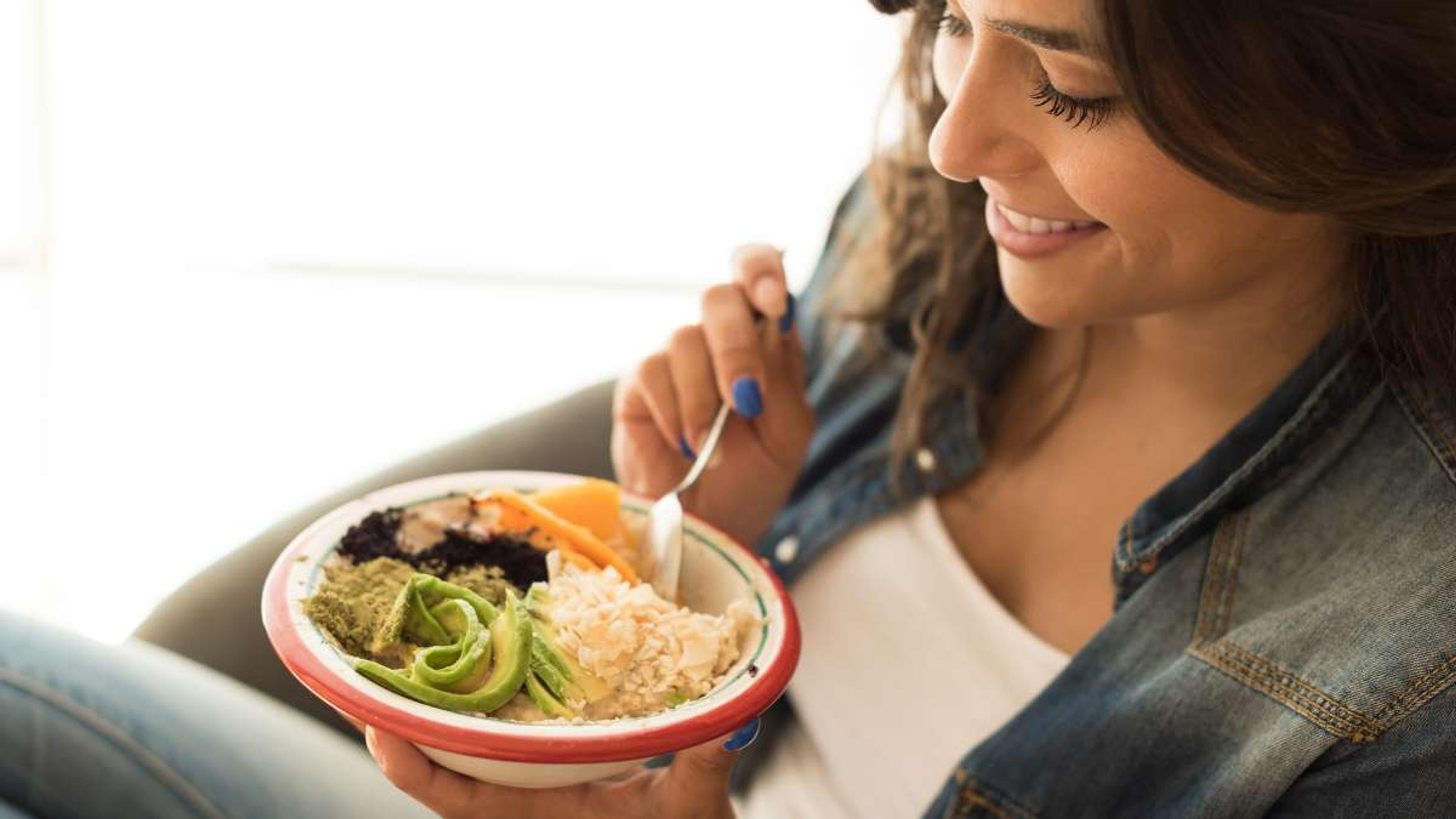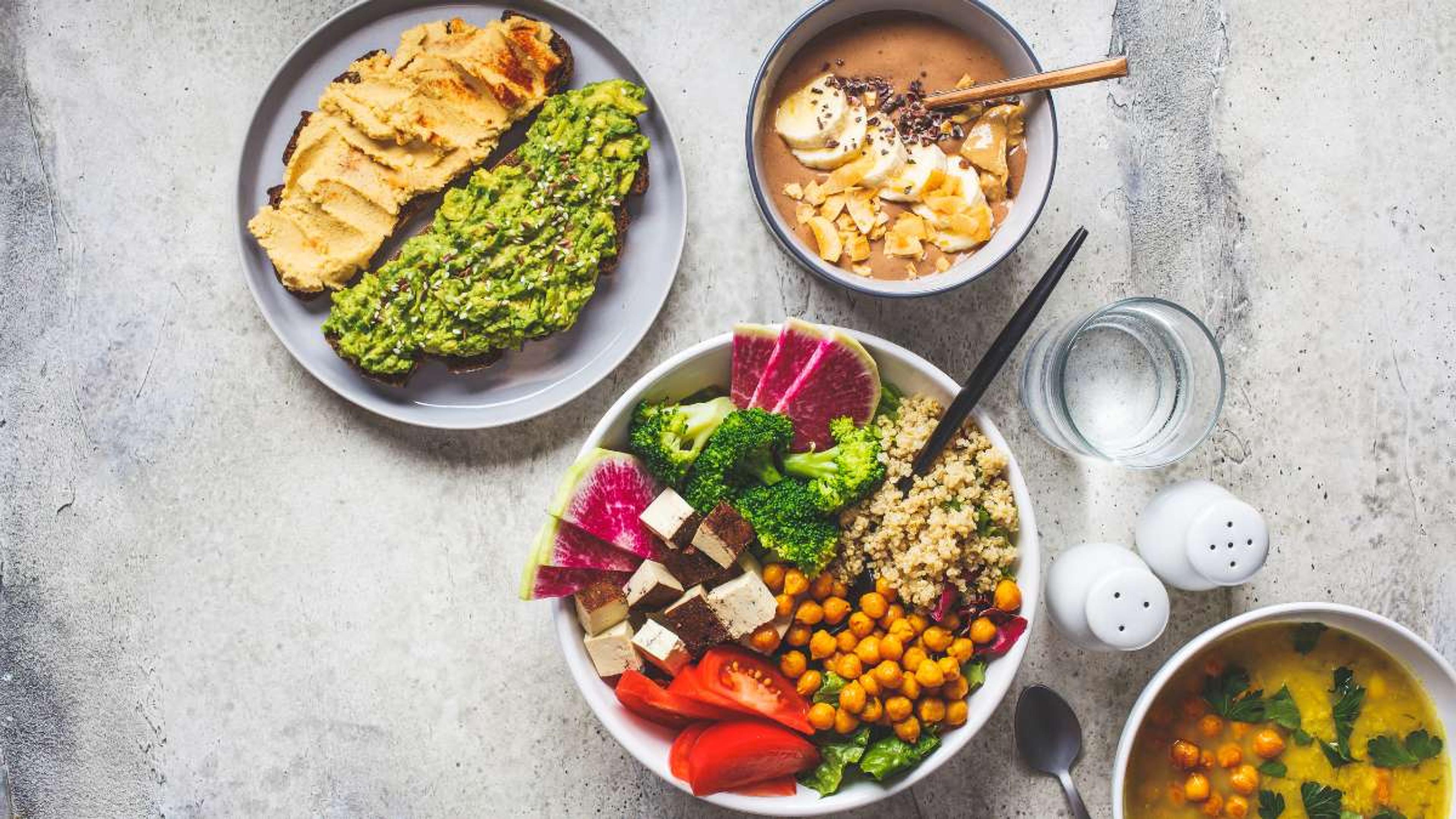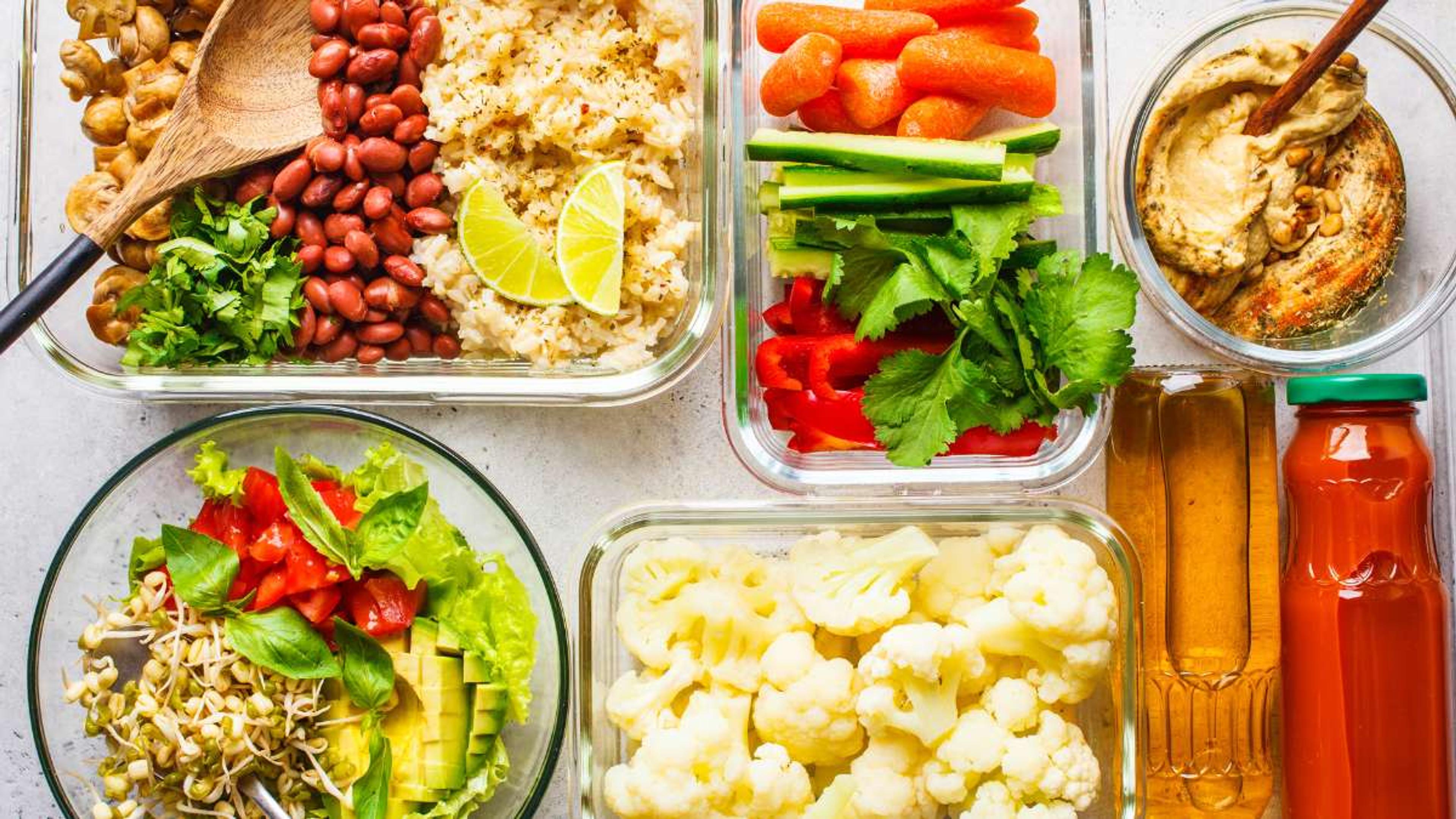Vegan Diet for Runners: Boost Your Endurance Naturally

- Key Takeaways
- 5 Benefits of a Vegan Diet for Runners
- Key Nutrients for Vegan Runners
- Overcoming Challenges and Misconceptions
- Creating a Vegan Runner Diet Plan
- Conclusion
- FAQs
Are you a runner considering transitioning to a vegan diet? Research shows that plant-based diets can effectively improve running performance. This article will help guide you through the benefits of a vegan diet for runners, key nutrients to focus on, and even how to create your own effective meal plan.
Ready to hit the ground running with your new diet?.
Key Takeaways
- Transitioning to a vegan diet can improve running performance by providing more strength and stamina, faster recovery, improved glycogen storage, better blood flow and tissue oxygenation, and easier weight management.
- Vegan runners need to pay attention to their macronutrient balance, ensuring they consume enough protein from sources like tofu, lentils, quinoa while also considering the importance of BCAAs for muscle recovery. They should also consider micronutrients like zinc and vitamin B12.
- Addressing challenges and misconceptions about vegan diets includes debunking myths about protein concerns, using supplements & fortified foods for nutrition needs, and seeking professional guidance from a registered dietitian specializing in sports nutrition.
5 Benefits of a Vegan Diet for Runners
A vegan diet can provide several benefits for runners.

1. Improved performance and endurance
Eating a vegan diet helps runners do better. It provides fewer calories and fats than other diets. So, it is easier to move fast and long without feeling tired or heavy. Many athletes on plant-based diets have shown two to three times more strength and stamina.
Even with less fat, they don't feel muscle tiredness easily. They also get back their energy quicker after running hard.
2. Decreased inflammation & enhanced recovery
A vegan diet that incorporates whole foods is great for runners because it can help to cut down on inflammation. Eating meat can cause swelling that hurts your game and slows you down. Plants help stop this problem.
They are full of things like antioxidants, fibre, and potassium, needed by your body to fight off swelling.
Another benefit of a vegan diet has to do with recovery time after a long run. Plant-based foods are a great source of fibre, making this faster and easier. They give the body what it needs to heal itself quickly after hard exercise.
This helps runners get back on their feet fast!
3. Improved glycogen storage
Eating plants boosts glycogen storage for runners. Plants are rich in carbs, fueling better storage of glycogen. This is good news for endurance athletes. A vegan diet fills your body with more carbs than meat does.
Hence, it allows better storage of glycogen. More stored glycogen means stronger muscles and longer runs!
4. Better blood flow and increased tissue oxygenation
A vegan diet can actually improve blood flow and increase the amount of oxygen that reaches your body's tissues. This is because plant-based diets have been shown to reduce blood viscosity, making it easier for blood to flow through the arteries. Additionally, studies have shown that a vegan diet can also reduce the risk of heart disease.
By improving arterial flexibility, a vegan diet enhances vascular flow and ensures that oxygen is delivered more efficiently to your muscles during exercise. This improved blood flow and tissue oxygenation can ultimately contribute to better running performance by providing your muscles with the necessary nutrients and energy they need to perform at their best.
5. Easier weight management
A vegan diet can make weight management easier for runners. By focusing on plant-based foods, runners can consume fewer calories while still feeling full and satisfied. Plant foods are generally lower in calories compared to animal products, which can help with weight loss or maintaining a healthy weight and a healthy diet.
Additionally, a vegan diet is often rich in fiber, which aids in digestion and promotes feelings of fullness. This means that runners can eat larger volumes of food without consuming excess calories.
Overall, incorporating a vegan diet into a runner's lifestyle can contribute to sustainable weight management and support overall health and performance.
Key Nutrients for Vegan Runners
Vegan runners need to pay attention to their macronutrient balance, ensuring they consume enough protein from sources such as tofu, lentils, and quinoa while also considering the importance of BCAAs (Branched Chain Amino Acids) for muscle recovery.
Additionally, micronutrients like zinc, vitamin B12, and vitamin K should be considered when following a vegan diet for optimal performance.

Macronutrient balance
A vegan diet for runners needs to have a proper balance of macronutrients. Macronutrients are the nutrients that our bodies need in larger amounts, and they include carbohydrates, proteins, and fats.
Carbohydrates are particularly important for runners as they provide energy for exercise. Good sources of carbohydrates in a vegan diet include whole grains like oats and quinoa, as well as fruits and vegetables.
Proteins are essential for muscle repair and growth, so it's important to include plant-based protein sources such as lentils, tofu, and chickpeas. Fats are also necessary for overall health and can be obtained from foods like nuts, seeds, avocados, and olive oil.
Healthy vegan fats play a crucial role in a runner's diet by providing sustained energy, supporting hormone production, and aiding in nutrient absorption. Incorporating these fats into a vegan diet can help runners optimize their performance and recovery. One excellent source of healthy vegan fats is nuts. Almonds, walnuts, and cashews are packed with omega-3 fatty acids, which have anti-inflammatory properties and are beneficial for cardiovascular health. They also provide a good amount of protein and fiber.
Protein intake and sources
Protein is important for vegan runners to support their muscles. Here are some sources of protein for a vegan diet:
- Tofu: Made from soybeans, tofu is a great source of protein.
- Lentils: These legumes are packed with protein and can be added to soups or salads.
- Quinoa: This grain is a complete protein, meaning it contains all essential amino acids.
- Chickpeas: Also known as garbanzo beans, chickpeas can be used in salads or made into hummus.
- Almonds: These nuts are not only a good source of healthy fats but also contain protein.
- Peanut butter: A spoonful of peanut butter provides both protein and healthy fats.
- Black beans: Versatile and delicious, black beans can be added to burritos, salads, or chili.
BCAAs (Branched Chain Amino Acids)
BCAAs, also known as Branched Chain Amino Acids, are essential nutrients for vegan runners following a plant-based diet. These amino acids are important because plant-based protein sources often lack certain essential amino acids. Sources of BCCA in vegan diet include vegan protein powders, such as pea protein or hemp protein, which are specifically formulated to provide all the essential amino acids. Additionally, soy products like tempeh and edamame are rich in BCAAs and can be easily incorporated into meals.
BCAAs can help fill this nutritional gap and provide the body with the necessary building blocks for muscle repair and growth. Vegan protein powders are a popular source of BCAAs for vegan athletes, offering them an easy way to incorporate these beneficial nutrients into their diet.
By including BCAAs in their nutrition plan, vegan runners may experience improved exercise performance, reduced muscle soreness, and enhanced muscle recovery - all crucial factors for their endurance training.
Micronutrient considerations
Micronutrients like calcium, zinc, iron, vitamin B12, and vitamin D are crucial for vegan runners. These nutrients can be found in plant-based foods but may require extra attention to ensure adequate intake. Micronutrient rich vegan foods, particularly for runners, include leafy green vegetables like spinach and kale, nuts and seeds such as almonds and chia seeds, fortified plant-based milk alternatives like almond or soy milk, whole grains like quinoa and brown rice, and legumes like lentils and chickpeas.
Calcium is important for bone health, which is especially crucial for runners who put stress on their bones during training. Incorporating calcium-rich foods like tofu, fortified plant milks, and leafy greens into the diet can help vegans meet their calcium needs.
For example, vitamin B12 is mainly found in animal products, so vegans need to supplement or consume fortified foods. Similarly, sources of calcium and iron should be diversified through foods like leafy greens, legumes, nuts and seeds.
Overall, by carefully planning their diets and incorporating a variety of nutrient-rich plant-based foods into their meals and snacks, vegan runners can meet their micronutrient needs for optimal health and performance.
Overcoming Challenges and Misconceptions
Addressing protein concerns. Debunking myths about vegan diets. Using supplements & fortified foods for vegan athletes. Seeking professional guidance. Read on to learn how to overcome challenges and misconceptions when following a vegan diet as a runner!

Addressing protein concerns
One concern for runners following a vegan diet is whether they can get enough protein without animal products. However, it is possible to meet protein needs on a well-planned plant-based diet.
While plant foods generally have lower amounts of protein compared to animal sources, it's important to eat a variety of protein-rich plant foods. This includes legumes like lentils and chickpeas, tofu, quinoa, nuts and seeds such as almonds and sunflower seeds, and whole grains like oats.
By incorporating these into their meals and snacks, vegan runners can ensure they are getting enough protein to support their training and recovery.
Debunking myths about vegan diets
- Veganism is not a fad, but a sustainable dietary choice.
- Contrary to popular belief, veganism can be affordable.
- Vegans can get enough protein from plant-based sources like tofu, lentils, and quinoa.
- Studies show that a well-planned vegan diet can provide all essential nutrients for good health.
- Not all vegans are preachy; many just want to educate others about the benefits of plant-based eating.
- Veganism is a personal choice and should not be equated with an unhealthy obsession with food.
Using Supplements & Fortified Foods for vegan athletes
Supplements and fortified foods can be helpful for vegan athletes to ensure they meet their nutritional needs. Here are some options to consider:
- Vegan protein powder: A protein supplement can help vegans meet their protein requirements, especially if they have higher protein needs due to intense training.
- Vitamin B12 supplement: Vitamin B12 is mainly found in animal products, so a supplement is necessary for vegans to prevent deficiency.
- Iron supplement: Plant-based sources of iron may not be as easily absorbed by the body, so an iron supplement can help prevent iron deficiency anemia.
- Omega-3 fatty acids: Vegans can take algae-based omega-3 supplements to get the essential fatty acids found in fish oil.
- Fortified plant milk: Many plant milks, like soy or almond milk, are fortified with calcium and vitamin D, important nutrients for bone health.
- Fortified cereals: Look for fortified whole grain cereals that provide essential nutrients like B vitamins and iron.
Seeking professional guidance
If you're considering transitioning to a vegan diet as a runner, it can be helpful to seek professional guidance. Registered dietitians specializing in sports nutrition can provide personalized advice and support to ensure you're meeting all your nutrient needs.
They can help you create a balanced meal plan that includes enough protein, vitamins, and minerals for optimal performance. Additionally, they can address any concerns or misconceptions you may have about vegan diets and offer recommendations on supplements or fortified foods if necessary.
Remember, while a vegan diet is an option for athletes, it's important to consult with a professional to make sure you're fueling your body properly for training and racing.
Creating a Vegan Runner Diet Plan
To create a Vegan Runner Diet Plan, focus on meal timing, nutritional density, and optimal muscle composition for improved performance and endurance.

Meal timing and frequency
A well-thought-out vegan diet for runners includes proper meal timing and frequency. Here are some key tips to consider:
- Eating a balanced meal about 2-3 hours before running provides the body with necessary fuel and enough time to digest.
- Aim to eat smaller, easily digestible snacks or meals 30 minutes to an hour before shorter runs or workouts.
- After a run, consume a post-workout meal or snack within 30 minutes to replenish energy stores and promote muscle recovery.
- Eating regular meals and snacks throughout the day helps maintain steady energy levels for optimal performance.
- Consider dividing your daily calorie intake into smaller, more frequent meals if you have difficulty consuming larger portions at once.
- Stay hydratedby drinking water before, during, and after your runs.
Nutritional density
A vegan diet is known for its high nutritional density, meaning that it contains a lot of important nutrients per calorie. This can be especially beneficial for runners because they need to fuel their bodies with the right nutrients to maintain energy levels and support overall health.
A plant-based diet typically includes whole grains, fruits, vegetables, legumes, nuts, and seeds, which are all nutrient-rich foods. These foods are packed with vitamins, minerals, fiber and antioxidants that can help improve performance and aid in recovery.
By eating a wide variety of plant-based foods, runners can ensure they're getting the necessary nutrients to support their training and optimize their running potential.
Optimal muscle composition
A vegan diet can help runners achieve optimal muscle composition. When combined with exercise, a plant-based diet can promote muscular adaptations that improve performance and endurance.
By decreasing weight and promoting leaner bodies, a well-planned vegan diet can enhance overall athleticism. It is important for vegetarian and vegan athletes to ensure they are getting enough nutrients through their plant-based diet to support their muscle development.
However, if not properly planned, a vegan diet may be detrimental to endurance and muscle strength. So, it's crucial for runners following a vegan lifestyle to carefully plan their meals to meet their nutritional needs for optimal muscle composition.
Sample meal
A vegan runner meal plan should be properly designed to cater for all nutritional needs and fuel performance. This sample meal plan offers an idea of what vegan runners can consume to meet their dietary requirements.
Breakfast
Oatmeal topped with berries, flax seeds, and almond milk
Nutritional Value: High in fiber and a good source of protein
Mid-Morning Snack
Smoothie made from spinach, banana, almond butter, and a scoop of vegan protein powder
Nutritional Value: Rich in vitamins, minerals and protein
Lunch
Lentil soup with a side of whole grain bread and avocado
Nutritional Value: Excellent source of protein and healthy fats
Afternoon Snack
Handful of mixed nuts and an apple
Nutritional Value: Provides protein, healthy fats, and fiber
Dinner
Quinoa salad with chickpeas, cucumber, cherry tomatoes, and tahini dressing
Nutritional Value: High in protein, fiber and healthy fats
Evening Snack
Bowl of mixed berries and a square of dark chocolate
Nutritional Value: Loaded with antioxidants and a little treat to satisfy sweet cravings
Remember that this plan is just a suggestion. Adjust portion sizes based on your unique caloric needs. This meal plan meets protein requirements, includes BCAAs, and provides a balanced distribution of macro and micro nutrients, making it suitable for vegan runners.
Conclusion
In conclusion, a vegan diet can provide numerous benefits for runners. It can improve performance, enhance recovery, and support optimal muscle composition. By focusing on whole plant-based foods and meeting key nutrient requirements, vegan athletes can thrive in their running endeavors while also promoting overall health and well-being.
So lace up your shoes and fuel your runs with the power of plants!
FAQs
1. Can a vegan diet provide enough energy for runners?
Yes, a well-planned vegan diet can provide all the necessary nutrients and energy to support the needs of runners.
2. What are good sources of protein in a vegan diet for runners?
Good sources of plant-based protein for runners include beans, lentils, tofu, tempeh, quinoa, nuts, and seeds.
3. Will I get enough iron on a vegan diet as a runner?
Yes, there are plenty of plant-based sources of iron such as dark leafy greens, legumes (beans and lentils), whole grains, nuts and seeds that can meet your iron needs as a runner.
4. How can I ensure I am getting enough nutrients on a vegan diet while running?
To ensure you're getting all the necessary nutrients on a vegan diet while running, focus on consuming a variety of fruits, vegetables, whole grains,
legumes (beans and lentils), nuts and seeds to meet your nutritional requirements. Consider consulting with
a registered dietician who specializes in plant-based diets to help create an optimal meal plan.

